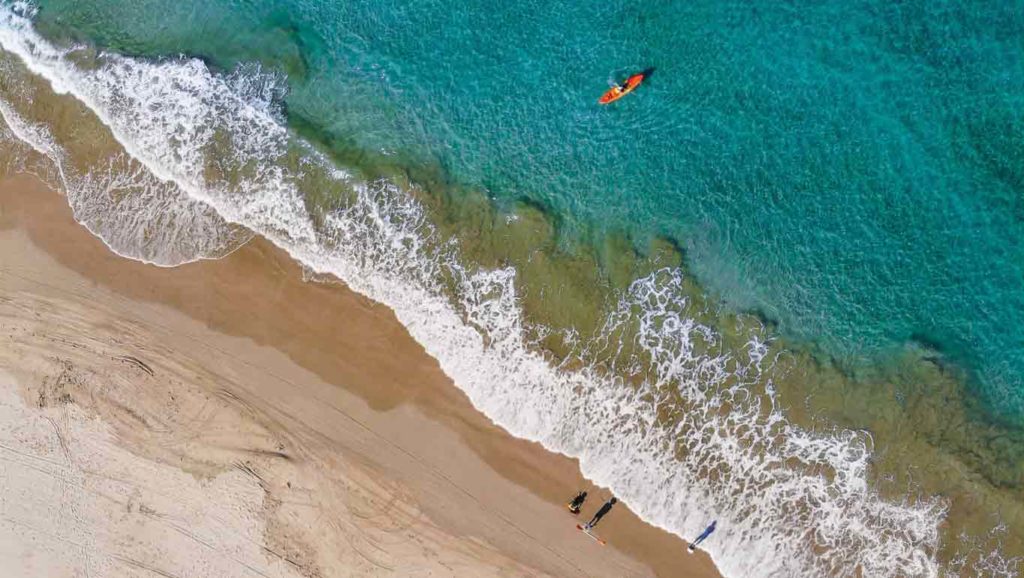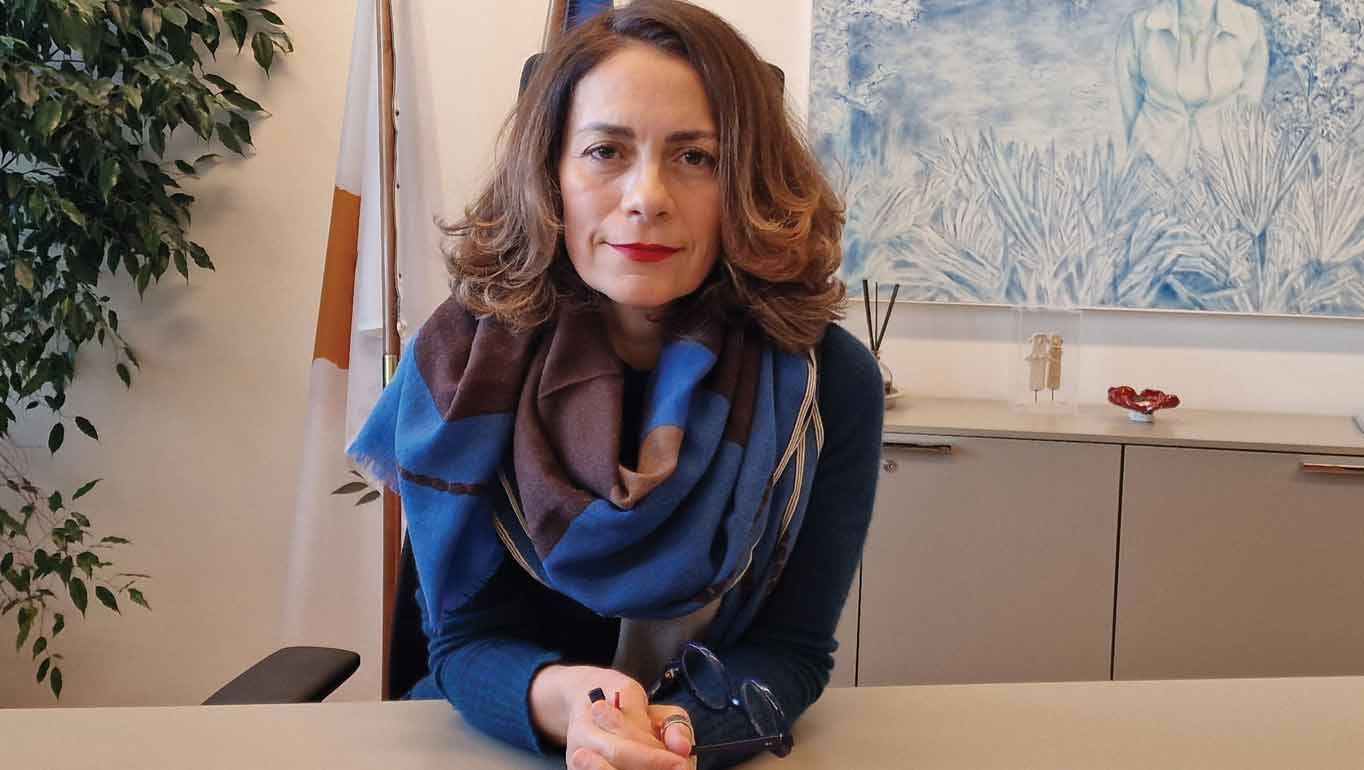Your Excellency, please could you tell us about your career and what led you to your current position?
Becoming a diplomat was not my initial plan. While I studied law and became a barrister in London, intending to practice law in Cyprus, I quickly became convinced that diplomacy was my vocation. I pursued my dream and entered the diplomatic corps of Cyprus in 1999 – back in the previous millennium – and here I am 25 years later, privileged to be the first female Ambassador of Cyprus in Geneva.
I have been rewarded with interesting and challenging posts: in France, Greece, the USA, and Brussels, my most recent stint representing Cyprus in the European Union, as the Permanent Representative to COREPER I.
This last job was the most challenging and rewarding one in my whole career, at least so far. Actively participating in the sui generis project that is the EU, sitting around the table at 27 member states and essentially co-producing legislation that eventually becomes the law of the land, in all 27 countries. Legislation that could range from regulating AI, establishing standards of energy-efficient buildings, enhancing the resilience of telecoms’ infrastructure, or upholding the rights of lorry drivers across Europe.
Being in Geneva for almost three years now has allowed me to delve into the force of good that is multilateralism, in the various fields of human rights, global health, world trade, migration and humanitarian affairs, to name but a few. Collectively seeking to craft solutions to global challenges is extremely challenging but very meaningful too.
Amidst grave geopolitical tensions and the hugely transformational – but yet unknown – impact of technological advances, I believe that we diplomats here in Geneva are fully conscious that we are living through a period where decisions and political actions – especially at the collective and multilateral level – will significantly shape humanity’s future.

What are the main priorities that the Mission brings to the UN drawing board in Geneva?
It should not come as a big surprise to hear that Cyprus, as a small state, is a consistent advocate of a rules-based international order, with the UN Charter and its principles such as sovereign equality and the peaceful settlement of disputes, at its core. Cyprus is a country that has been invaded and occupied since 1974 and where a UN Peacekeeping Force has been present on its territory since 1964.
Despite the obvious shortcomings of our multilateral system, it is the best we have to ensure a safer, more peaceful, more sustainable, and equal world. The same is valid in seeking to achieve a solution to the division of Cyprus, based on relevant UN Security Council Resolutions and Human Rights Law.
Cyprus, as a member of the EU, supports and actively participates in efforts to increase the effectiveness and efficiency of the multilateral system where global solutions can be found in the global polycrises we are faced with.
Cyprus has been a member of the UN since gaining its independence in September 1960. Like many countries, we have layers of different identities: we are a small island state, a member of the European Union, a Mediterranean country, and a Commonwealth country. In 1974, a third of our population became an ‘internally-displaced person’, and we are still receiving a large number of asylum seekers and refugees.
Being a keen contributor to the UN, we thought it was high time we sought to become a member of the Human Rights Council for 2025-2027. If we were to be elected in October, this would be our first time serving on the Council, focusing on fields such as gender equality, rights of the child, persons with disabilities, and the fight against discrimination.
Having Cyprus elected at the Human Rights Council for the first time, is our number one priority as a Mission in 2024 in Geneva.
Cyprus is known as a tourism hotspot in Europe. Has the sector recovered well after the pandemic?
Cyprus’ tourism numbers soared to 3,722,022 visitors in 2023, almost fully recovering to pre-pandemic levels. The forecasts for 2024 also remain strong.
My country, a gem of an island in the Mediterranean, entices visitors with its unique, rich history and cultural heritage, natural beauty, and stunning beaches, with buzzing cities and 340 days of sunshine throughout the year. You could choose from immersing yourself in ancient archaeological sites like the UNESCO-listed Paphos or exploring its rugged landscapes, forests and mountains, ideal for hiking, biking, and nature adventures. Not to forget the Cypriot cuisine, an interesting fusion of Mediterranean flavors, and the warmth of the islanders’ hospitality.
As you might imagine, tourism holds immense importance for Cyprus, serving as a vital pillar of its economy. As such, we are actively and constantly seeking to update our tourism product to remain competitive but also evolving to suit traveler demands, including high-level infrastructure and sustainable tourism practices.
The oldest wine in the world comes from Cyprus. Do you think this has a positive impact on the wine sector of your economy?
Commandaria, hailed as one of the world’s oldest wines still in production, holds a cherished place in my country’s cultural and culinary heritage. It is a luscious dessert wine boasting a history entwined with legends and traditions. Its name was given by the Templar Knights and the Knights of the Order of Saint John, renaming the local wine after their new protectorate in the foothills of the Troodos mountains, known as ‘La Grande Commanderie’ at the time of the Crusades.
Commandaria possesses, I think, significant export potential, appealing to international markets seeking fine wines with a touch of history. Coupled with Cyprus’s commitment to quality winemaking, Commandaria can become a valued ambassador of the island’s viticultural legacy.



